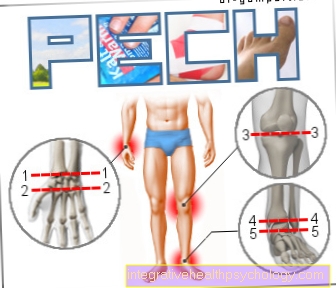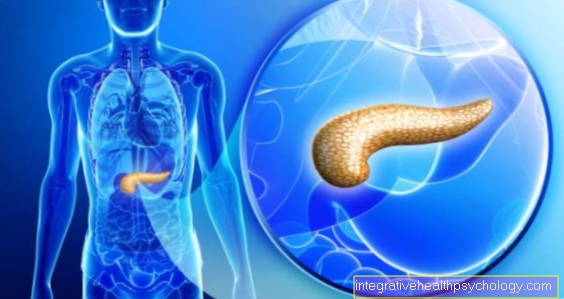Training marathon
Synonyms in a broader sense
- jogging
- Endurance sports
- Endurance training
- To run
- Running
- Triathlon
English: marathon
Definition of a marathon
The goal of the marathon is to leave the defined distance of 42.195 km behind in the shortest possible time.
However, the marathon is much more than just “running” this distance, it requires months of specific preparation.
Marathon runners prepare for a one-off performance, but most of them get a fever from endurance sports and the marathon becomes part of their quality of life.
contents
- history
- requirements
2.1 perseverance
2.2 Goals
2.3 Material - Energy supply
Points 1.-3. can be found under our topic: marathon
- training
4.1 Marathon run in 4:00 hours
4.2 Running a marathon under 3:30 hours - nutrition
5.1 During training
5.2 Before the competition
5.3 During the competition
Marathon under 4 hours

This training is designed to be able to survive the distance of 42.195 km. It is not about a time limit that has to be adhered to, but only about the goal of the distance.
This training is about improving the fat metabolism to such an extent that the energy required by the body, in addition to the carbohydrate stores, is mainly obtained from the fat reserves. In addition, it is important that the body is able to switch between burning fat and burning carbohydrates (glycolysis).
Please note during the training:
- Before and after training stretching / Stretching, especially the leg muscles.
See also our topic: Stretching - With interval training, the breaks between the intervals are 2 - 3 minutes.
- Most of the training should be done outside and not on the treadmill.
- Pay attention to the diet (see 5.)
- Strength training makes sense as a supplement, especially lower ones Back muscles.
See also our topic: Back training - The specified running times are guide values, the Pulse rate.
Marathon in 3:30
Run the marathon in 3:30 hours
If you want to run a marathon in 3:30 hours, you have to increase your carbohydrate storage through training. This is closely related to diet.
The prerequisite for taking up this training for the marathon is very good endurance.
The guideline here is a ten-kilometer run under 43 minutes or 20 kilometers under 1:40 hours.
The scope of training and the intensity of this training are very high. You have to consider that this training is very time-consuming and is calculated with 60-70 kilometers per week.
nutrition
- nutrition
While the training
Before the competition
During the competition
Nutrition during marathon training is just as important as the training itself. Since endurance training is about increasing the body's own energy stores, this can only be achieved through proper nutrition.
The diet for a marathon is divided into three areas.
On the one hand, it is about nutrition during the twelve-week training. A targeted attempt is made to increase the carbohydrate store. On the other hand, it is about nutrition one or two days before the marathon, during which special care is taken to ensure that the increased carbohydrate storage is completely replenished at the start of the competition.
The last point of the diet aims at the nutrient supply during the competition in order to fill empty stores again and to maintain the energy balance.
Nutrition in the training phase

The carbohydrate store
Since targeted marathon training is about aerobic endurance, it is necessary to replenish and increase the storage (carbohydrate storage) emptied through training.
The carbohydrates are stored in the liver (approx. One third) and the muscles (approx. 2 thirds) in the form of glycogen and are available there for muscular work.
After every workout, you should therefore pay attention to a diet rich in carbohydrates. These include above all:
- rice
- Pasta
- Potatoes
- Cereal flakes
- Cereals
- Bread and
- Bananas.
This type of carbohydrate is a complex form (multiple sugars). They take a long time to be digested before they are available as energy. It should therefore not be consumed directly (one hour) before running or during a competition.
Further information is also available under our topic carbohydrates
Energy production through fat
Fat is burned continuously in all human movements.
The body saves the carbohydrates for strenuous activities such as run a marathon on.
Since the carbohydrate storage is completely emptied after approx. 2-3 hours (often km 30-35), the body has no other alternative than to generate energy through Fat burning to switch. Free fatty acids are converted into energy in a complicated process. However, fat burning can be trained through targeted training with low loads.
Nutrition right before the competition
Immediately before the competition (48-24 hours), the food intake should be designed so that the energy stores are completely filled at the beginning of the competition. One speaks here of a so-called noodle party.
Sufficient on the evening before the competition (2 servings), and about 4 hours before the competition again a small portion of carbohydrate-rich food, e.g. Rice or pasta. This guarantees an optimally filled carbohydrate store
“Carboloading” (carbohydrate fattening) is a form of diet that is divided into two stages. In the first phase, you completely do without carbohydrates. In addition, you do intensive training so that the body's carbohydrate stores are completely emptied. In a second phase, about 3 days before the marathon, the emptied reservoirs are completely filled (loading). It is hoped that this will lead to an increased accumulation of carbohydrates. This form of nutrition is very controversial, as illnesses (colds and stomach problems) often occur here
Diet during the competition
Basically, most runners complete the marathon without eating. However, if you intend to do this, you should definitely include this in your training plan to test how your body reacts to it.
The additionally consumed food is not immediately available as energy, it has to be converted first, so you should eat preventive and not sustainable food. The carbohydrates must be consumed in the form of simple sugars (dextrose, energy bars, bananas), as these are available as energy much faster than multiple sugars (pasta, muesli, etc.).
Fluid intake while running is more important than solid food in order to maintain water loss. For this purpose, supply stands are usually offered by the organizer every 5 km.


.jpg)


























